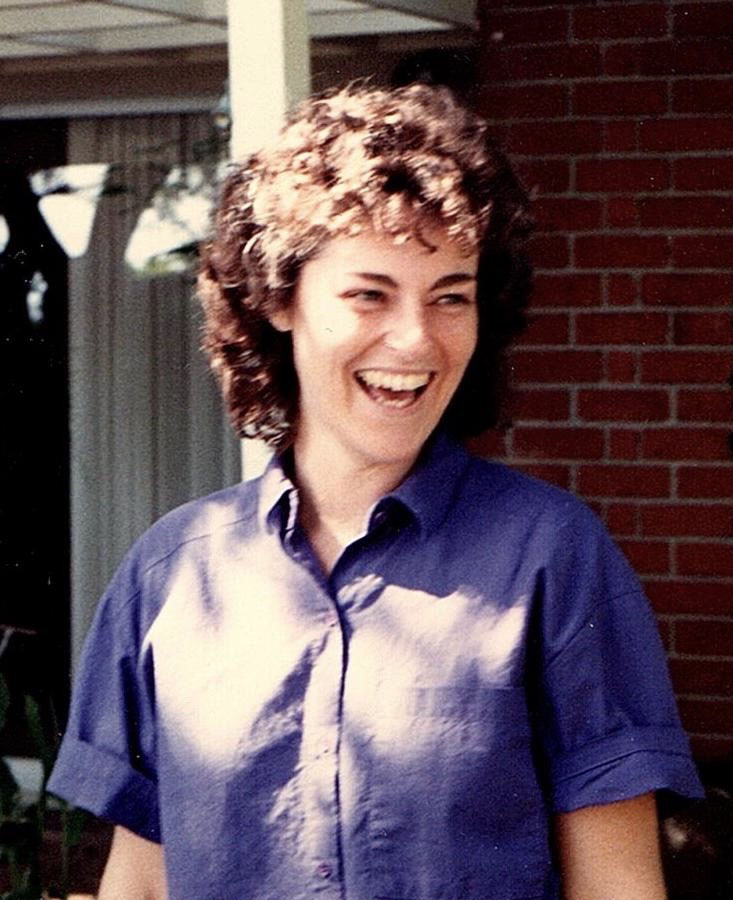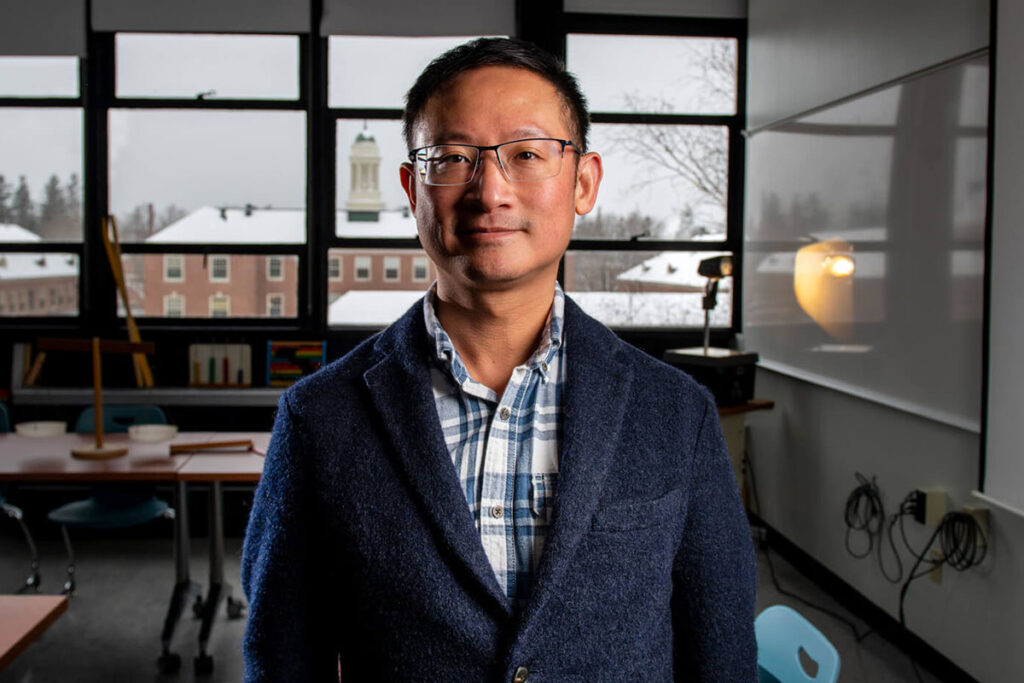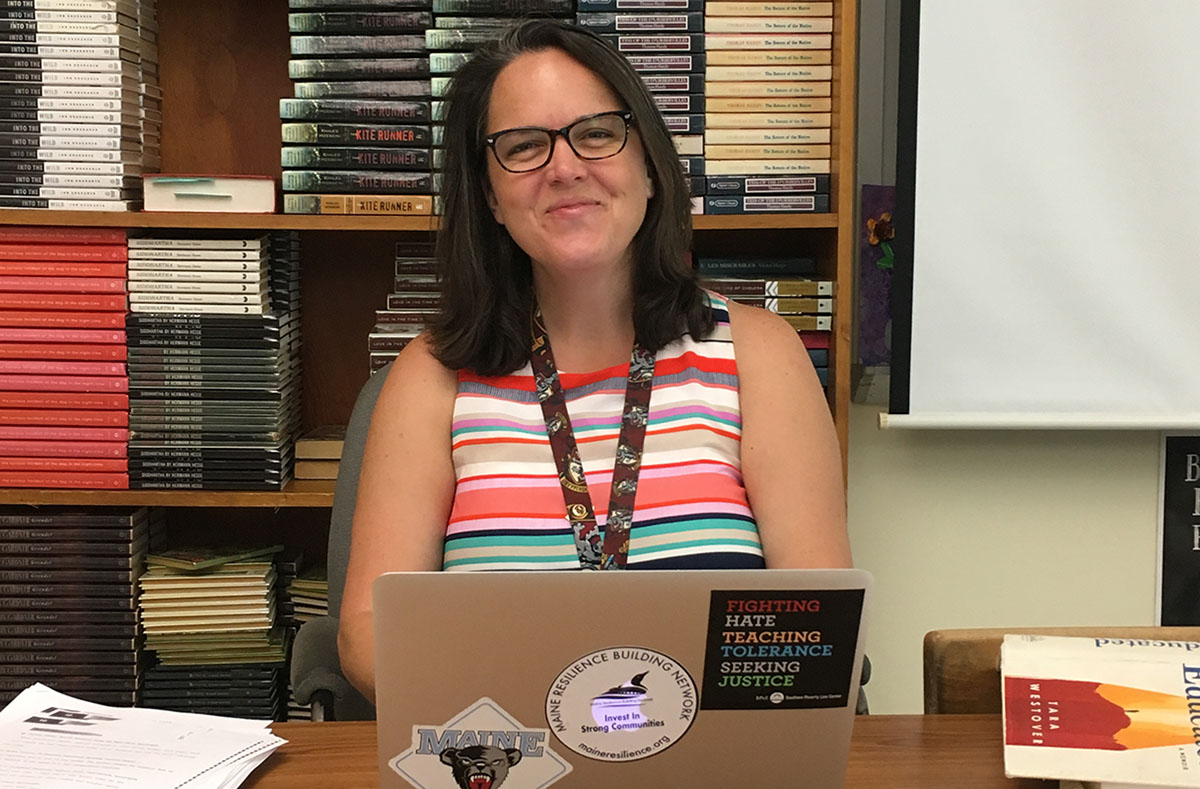Linda N. Lancaster Professional Development Fund

The Linda N. Lancaster Professional Development Fund is designed to help College of Education and Human Development doctoral students participate in professional development activities related to their research interests and programs of study. The fund was created in memory of Linda Lancaster, a promising doctoral student in the Counselor Education program at the time of her death in 1989.
Created by friends and family and administered by the college, the fund’s intent is to provide support to enhance student research and expand professional contacts and experience, such as travel to conferences. Part of the fund’s objective is to give students an opportunity to seriously present their case for funding. In their proposals, applicants must establish the relevance of the proposed activity to their research and persuasively explain to the committee how assistance would enrich their study and professional growth.
A committee of faculty from the College of Education and Human Development oversees the proposal and award process. Committee members are listed below. For more information about the Linda N. Lancaster Professional Development Fund, contact committee chair Shihfen Tu, professor of education and applied quantitative methods, 207.581.9064 or shihfen.tu@maine.edu.
I chaired the Linda N. Lancaster Professional Development Fund committee from its inception in 1989 to shortly before my retirement in 2019. Linda was my teaching assistant, and although her time at UMaine was tragically cut short, I’d like to think I came to know her well. I write this brief note for the ages, realizing that, with my retirement, I no longer am easily available to answer the recurring question, “So, just who was Linda Lancaster?” You may already know she was an exceptionally talented doctoral student in our counselor education program; that she was struck down by a drunken driver on February 18, 1989, while walking on an Orono sidewalk with a fellow doctoral student; and that her parents established the Linda N. Lancaster Professional Development Fund in her memory. The additional information below, while grossly inadequate to fully capture the life and character of this remarkable woman, will at least give you some sense of the person behind the name.
Theodore Coladarci, Professor Emeritus
July 17, 2019
Linda was born to Russell and Eleanor Nicholson on February 8, 1952, in the Kingdom of Saudi Arabia, where Russell worked for two decades. In 1958, the parents asked Stanford University professor H. P. McDaniel to conduct an educational evaluation of Linda as they planned for her education in a foreign country. “She is one of only six such people I have met in my entire career,” Professor McDaniel said of six-year-old Linda. “She can do anything, and will pursue what she has to do—and neither you nor I can stop her.”
Linda attended school in Saudi Arabia, and graduated from high school in Lugano, Switzerland. She later matriculated at George Washington University, where she received a baccalaureate in psychology. Extensive world travel greatly influenced her outlook on life.
Linda’s sense of fairness and her awareness of the needs of the less fortunate prompted her to join the Federal Bureau of Prisons. Her career took her to correctional facilities across the nation, where she encouraged both inmates and staff to achieve their potentials; instituted innovations, including drug testing and rehabilitation; and advocated for the rights of women.
In 1980, Linda became the first woman to be designated Executive Assistant to the Director of the Federal Bureau of Prisons. In this capacity, Linda directed the agency’s involvement with Congress, the Supreme Court, the Office of the U.S. Attorney General, and the White House. In 1984, as Associate Warden, she was instrumental in opening the Federal Medical Center in Rochester (MN). After Linda’s death, a former director of the Federal Bureau of Prisons observed, “In addition to possessing a keen mind, Linda was a personable and caring individual who went out of her way to assist those less fortunate than herself.” Indeed, the irony attending Linda’s death did not go unnoticed: In an alternate universe, as a Los Angeles Times article noted, Linda easily could have been providing alcoholism counseling to the very man who ultimately struck her down.
Linda took leave of the Federal Bureau of Prisons in 1987 to begin doctoral study in the College of Education at UMaine. As a student in the counselor education program, Linda enriched the courses she took, the counseling practica she oversaw, and the programs of research in which she participated. As my teaching assistant for an undergraduate class enrolling roughly 200 students a term, Linda had an enormous impact on the personal and academic lives of countless students in the two years she worked with me in that role. Upon her death, five weeks into the spring semester, students from the class wrote a moving testimony to Linda for the student newspaper. They opened by declaring, “The last five weeks have really given us an optimistic outlook on college and teaching assistants.” They then described the many academic supports Linda tirelessly provided, concluding with the sentiment, “Linda Lancaster is going to be an extremely tough act to follow, and she will be missed and remembered by many!”
Not surprisingly, Linda was deeply involved with the international student community. She often made a special effort to acquaint newly arrived foreign students with the campus and, in general, with life in America. This extended to spouses as well. Once, a Saudi spouse had been reluctant to return to Orono from vacation in her home country. Her husband, a graduate student, said his wife’s personal relationship with Linda was instrumental in her ultimately returning. Perhaps it is in this spirit that another Saudi student said, “East met West in Linda.”
Our doctoral students tend to be quite good, but a few are special. Linda was special among the special, and it is particularly special that she lives on through the activity of the Linda N. Lancaster Professional Development Fund. As her mother said to me in November of 1989, “The rewards of the Fund are more than monetary—if there is a glimmer of peace through these past months of horror, it is knowing that Linda is still reaching out to help others as she always did.”
1. What is the genesis of the Lancaster Fund?
Russell and Eleanor Nicholson, in memory of their daughter, established the Linda N. Lancaster Professional Development Fund in 1989. Linda was a popular and very promising doctoral student in the counselor education program. Her life came to a tragic end when she was struck down by a drunk driver.
2. What sorts of activities does the Lancaster Fund support?
The Fund is intended to support professional-development activities related to a doctoral student’s research interests and program of study. Examples of frequently funded proposals are making a refereed presentation at a regional or national conference, attending the annual meeting of a regional or national association, and participating in a workshop or training session conducted by recognized experts in the field.
3. Who can apply for support from the Lancaster Fund?
The Fund is restricted to doctoral students in the College of Education and Human Development.
4. What if I am in an interdisciplinary doctoral program?
If your primary advisor is a COEHD faculty member, you are eligible.
5. Does the Lancaster Fund cover dissertation-research expenses?
No.
6. How about the tuition for a course at another university?
No.
7. When can I apply for funding?
A call for proposals (RFP) goes out in September to all faculty, who then share it with their doctoral advisees. Proposals are due within several weeks.
8. What should I address in my proposal?
There are two critical components to a proposal, the first of which is the purpose and need for the professional-development activity you are proposing (roughly 250 words). For example, what are you proposing to do? When, where, and with whom (if applicable) will this take place? Most importantly, how will the proposed activity strengthen (a) your capacity for graduate-level study, research, and completion, and (b) your professional development in general?
9. That seems pretty straightforward.
Yes it is, but be sure your description is clear and persuasive. We cannot fund all proposals, and unfunded proposals typically fall short in this regard.
10. What’s the second critical component?
A detailed, itemized budget.
11. How long is the typical proposal?
2-3 double-spaced pages.
12. Should I also provide a letter of support from my advisor?
Yes, definitely.
13. Can you offer any general recommendations for preparing my proposal?
Again, be very clear and persuasive when describing your proposed activity. Further, your budget should clearly lay out all projected expenses: day-by-day, item-by-item. (It’s frustrating—and not in the student’s interests—when we have to do our own calculations, attempt to reconcile numbers, and so forth.) Finally, you are strongly encouraged to work closely with your advisor in the preparation of your proposal. At the very least, ask for critical feedback on an early draft, and then carefully incorporate your advisor’s comments and suggestions.
14. How large is the typical Lancaster award?
Over the past three years, awards ranged from $337 to $2,068, with a mean award of $1,241.
15. Do you partially fund proposals?
No—if a proposal is funded, it is funded fully.
16. May I submit more than one proposal?
No, each applicant may submit one proposal only.
17. Am I eligible even if I previously received a Lancaster award?
Yes.
18. I’d like to attend a conference, but I am not on the program—should I apply for a Lancaster award anyway?
Yes (see #2). We cannot fund all meritorious proposals, however, and all other things equal, being on the program is a stronger proposal than attending only. But all other things rarely are equal—so yes, still apply even if you are not on the program (and first revisit #13 above!).
Last updated 9/14/2019
Read about some of the past recipients of Linda Lancaster Fund grants below.

Ming-Tso Chien: Ph.D. student explores international secondary students’ experiences in Maine
Sherry Pineau Brown: Ph.D. candidate studying how students and teachers understand resilience through childhood adversity


Camden Bock: STEM Education Doctoral student bringing VR to classrooms across Maine
Shihfen Tu
Professor of Education and Applied Quantitative Methods, Chair
207.581.9064 | shihfen.tu@maine.edu
